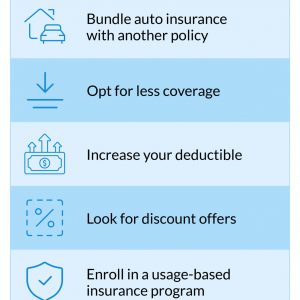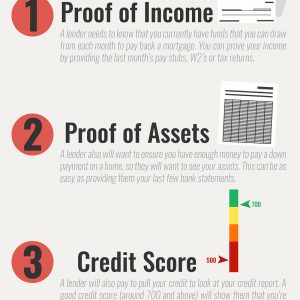“Maximize your savings with homeowner tax deductions.”
Introduction
Tax deductions for homeowners refer to the various expenses that homeowners can deduct from their taxable income to reduce their tax liability. These deductions can include mortgage interest, property taxes, and certain home improvements. Homeowners can claim these deductions on their federal income tax returns, which can help them save money on their taxes. In this article, we will explore some of the most common tax deductions for homeowners and how they can benefit from them.
Maximizing Your Mortgage Interest Deduction
As a homeowner, you may be eligible for a variety of tax deductions that can help you save money on your taxes. One of the most significant deductions available to homeowners is the mortgage interest deduction. This deduction allows you to deduct the interest you pay on your mortgage from your taxable income, reducing your overall tax liability.
To maximize your mortgage interest deduction, there are a few key things you need to know. First, you must itemize your deductions on your tax return in order to claim the mortgage interest deduction. This means that you will need to keep track of all of your deductible expenses throughout the year, including your mortgage interest payments.
Second, there are limits to the amount of mortgage interest you can deduct. Currently, you can deduct the interest on up to $750,000 of mortgage debt if you are married filing jointly, or up to $375,000 if you are single or married filing separately. If your mortgage debt exceeds these limits, you may still be able to deduct a portion of your interest payments, but the amount will be reduced.
Third, you must use the mortgage loan to buy, build, or improve your primary residence or a second home in order to qualify for the deduction. If you use the loan for other purposes, such as to pay off credit card debt or to finance a vacation, you will not be able to deduct the interest.
Finally, you must have a Form 1098 from your mortgage lender in order to claim the deduction. This form will show the amount of mortgage interest you paid during the year, and you will need to include it with your tax return.
In addition to the mortgage interest deduction, there are several other tax deductions available to homeowners. These include:
– Property tax deduction: You can deduct the property taxes you pay on your primary residence and any other real estate you own. There is no limit to the amount of property taxes you can deduct.
– Home office deduction: If you use a portion of your home exclusively for business purposes, you may be able to deduct a portion of your home expenses, including mortgage interest, property taxes, and utilities.
– Energy-efficient home improvement deduction: If you make certain energy-efficient improvements to your home, such as installing solar panels or a geothermal heat pump, you may be eligible for a tax credit.
– Casualty loss deduction: If your home is damaged or destroyed by a natural disaster or other unforeseen event, you may be able to deduct the cost of repairs or the loss of value on your tax return.
To take advantage of these deductions, it is important to keep accurate records of your expenses throughout the year. This may include keeping receipts for home improvements, property tax bills, and mortgage statements.
In addition, it is a good idea to consult with a tax professional to ensure that you are taking advantage of all of the deductions available to you. A tax professional can help you navigate the complex tax code and identify opportunities to save money on your taxes.
In conclusion, the mortgage interest deduction is a valuable tax benefit for homeowners, but it is important to understand the rules and limitations in order to maximize your savings. By keeping accurate records and consulting with a tax professional, you can take advantage of all of the deductions available to you and reduce your overall tax liability.
Home Office Deductions for Homeowners
As a homeowner, you may be eligible for a variety of tax deductions that can help you save money on your taxes. One of the most valuable deductions available to homeowners is the home office deduction. This deduction allows you to deduct a portion of your home expenses if you use a portion of your home exclusively for business purposes.
To qualify for the home office deduction, you must use a portion of your home regularly and exclusively for business purposes. This means that you cannot use the space for personal activities, such as watching TV or playing games. The space must also be your principal place of business, meaning that you use it to conduct most of your business activities.
If you meet these requirements, you can deduct a portion of your home expenses, including mortgage interest, property taxes, utilities, and repairs and maintenance. The amount of the deduction is based on the percentage of your home that is used for business purposes. For example, if your home office takes up 10% of your home’s total square footage, you can deduct 10% of your home expenses.
To calculate your home office deduction, you will need to determine the total square footage of your home and the square footage of your home office. You can then use this information to calculate the percentage of your home that is used for business purposes. Once you have this percentage, you can apply it to your home expenses to determine your deduction.
It is important to keep accurate records of your home expenses and the square footage of your home and home office. This will help you to accurately calculate your deduction and avoid any issues with the IRS.
In addition to the home office deduction, there are other tax deductions available to homeowners. These include deductions for mortgage interest, property taxes, and home improvements.
Mortgage interest is one of the largest tax deductions available to homeowners. You can deduct the interest paid on your mortgage up to a certain amount, depending on your income and the size of your mortgage. This deduction can help you save thousands of dollars on your taxes each year.
Property taxes are another tax deduction available to homeowners. You can deduct the amount of property taxes paid on your home each year. This deduction can help you save money on your taxes and reduce your overall tax liability.
Finally, home improvements can also be tax deductible. If you make improvements to your home that increase its value, such as adding a new roof or installing energy-efficient windows, you may be able to deduct the cost of these improvements from your taxes.
In conclusion, as a homeowner, there are many tax deductions available to you that can help you save money on your taxes. The home office deduction is one of the most valuable deductions available, allowing you to deduct a portion of your home expenses if you use a portion of your home exclusively for business purposes. In addition to the home office deduction, there are other tax deductions available to homeowners, including deductions for mortgage interest, property taxes, and home improvements. To take advantage of these deductions, it is important to keep accurate records of your home expenses and consult with a tax professional to ensure that you are maximizing your tax savings.
Donating to Charity: Tax Benefits for Homeowners
As a homeowner, you may be aware of the various tax deductions available to you. One of the most significant tax benefits for homeowners is the ability to donate to charity and receive a tax deduction. Not only does donating to charity help those in need, but it can also provide financial benefits for homeowners.
When you donate to a qualified charitable organization, you can deduct the value of your donation from your taxable income. This means that you can reduce the amount of taxes you owe to the government. However, it is important to note that not all donations are tax-deductible. To qualify for a tax deduction, your donation must be made to a qualified charitable organization that is recognized by the IRS.
There are several types of donations that homeowners can make to receive a tax deduction. One of the most common types of donations is cash donations. When you donate cash to a qualified charitable organization, you can deduct the full amount of your donation from your taxable income. However, it is important to keep records of your donations, such as receipts or bank statements, to prove the amount of your donation.
Another type of donation that homeowners can make is donating goods. When you donate goods, such as clothing or furniture, to a qualified charitable organization, you can deduct the fair market value of the goods from your taxable income. It is important to note that the fair market value is the price that the item would sell for in its current condition, not the price that you paid for it.
In addition to cash and goods donations, homeowners can also donate appreciated assets, such as stocks or real estate. When you donate appreciated assets, you can deduct the fair market value of the asset from your taxable income. This can be a significant tax benefit for homeowners, as appreciated assets can often have a higher value than their original purchase price.
It is important to note that there are limits to the amount of tax deductions that homeowners can receive for charitable donations. The IRS sets limits based on the type of donation and the homeowner’s income. For cash donations, homeowners can deduct up to 60% of their adjusted gross income. For appreciated assets, homeowners can deduct up to 30% of their adjusted gross income.
In addition to the tax benefits of donating to charity, homeowners can also benefit from the positive impact that their donations can have on their community. By donating to a qualified charitable organization, homeowners can help support important causes, such as education, healthcare, and environmental conservation.
Overall, donating to charity can provide significant tax benefits for homeowners. By donating cash, goods, or appreciated assets to a qualified charitable organization, homeowners can reduce their taxable income and potentially lower their tax bill. It is important to keep records of your donations and to ensure that you are donating to a qualified charitable organization recognized by the IRS. By donating to charity, homeowners can not only benefit financially, but also make a positive impact on their community.





